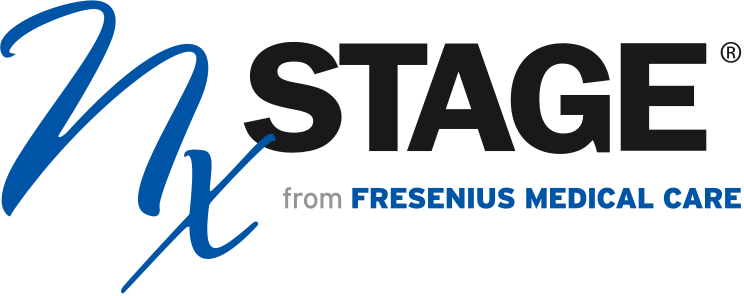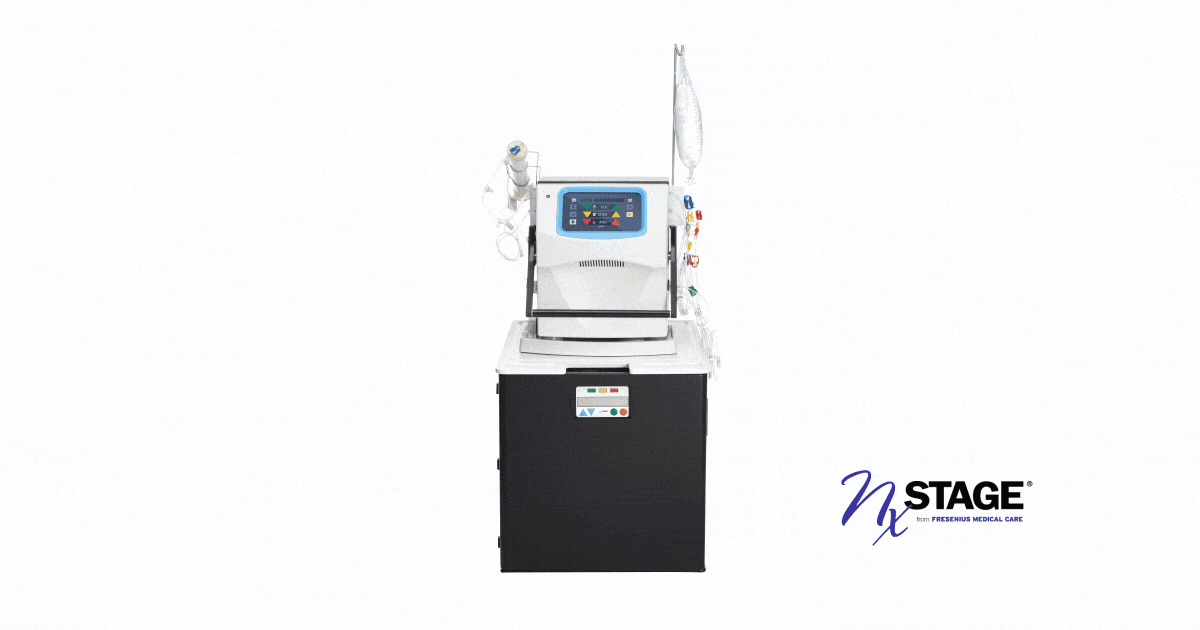Continue to Connect with NxStage
Sign up to receive additional information on NxStage and the Versi™HD system including:
- Treatment options with the VersiHD
- Nocturnal therapy while patients and their care partners sleep
- Solo therapy during waking hours
Clinical benefits and considerations of more frequent therapy
Unique VersiHD features designed for ease of use
Patients' freedom to travel & more!
Discover why NxStage Home Hemodialysis (HHD) solutions provide flexibility to meet your patients' unique clinical and lifestyle needs and why our HHD equipment is the #1 most prescribed HHD equipment in the US.1
Risks and Responsibilities
Patients should review the following information carefully and discuss it with their doctors to decide whether home hemodialysis with NxStage systems is right for them.
Users should weigh the risks and benefits of performing home hemodialysis with NxStage systems.
- Medical staff will not be present to respond to health emergencies that might happen during home treatments.
- Users and their care partners will be responsible for all aspects of their hemodialysis treatments from start to finish.
- Users may not experience the reported benefits of home, more frequent or nocturnal hemodialysis with the NxStage systems.
- The NxStage systems require a prescription for use.
Certain forms of home hemodialysis have additional risks.
- If a doctor prescribes more frequent home hemodialysis, vascular access is exposed to more frequent use which may lead to access related complications, including infection of the site. Doctors should evaluate the medical necessity of more frequent treatments and discuss the risks and benefits of more frequent therapy with users.
- If a doctor prescribes “solo/independent” home hemodialysis without a care partner during waking hours, risks of significant injury or death increase because no one is present to help users respond to health emergencies. If users experience needles coming out, blood loss, or very low blood pressure during solo home hemodialysis, they may lose consciousness or become physically unable to correct the health emergency. Users will need additional ancillary devices and training to perform solo home hemodialysis.
- If a doctor prescribes “nocturnal” home hemodialysis at night while the user and a care partner are sleeping, risks increase due to the length of treatment time and because therapy is performed while users and their care partners are sleeping. These risks include, among other things, blood access disconnects and blood loss during sleep, blood clotting due to slower blood flow or increased treatment time or both, and delayed response to alarms when waking from sleep.
References
-
NxStage data on file, (Effective date: October 2020)

